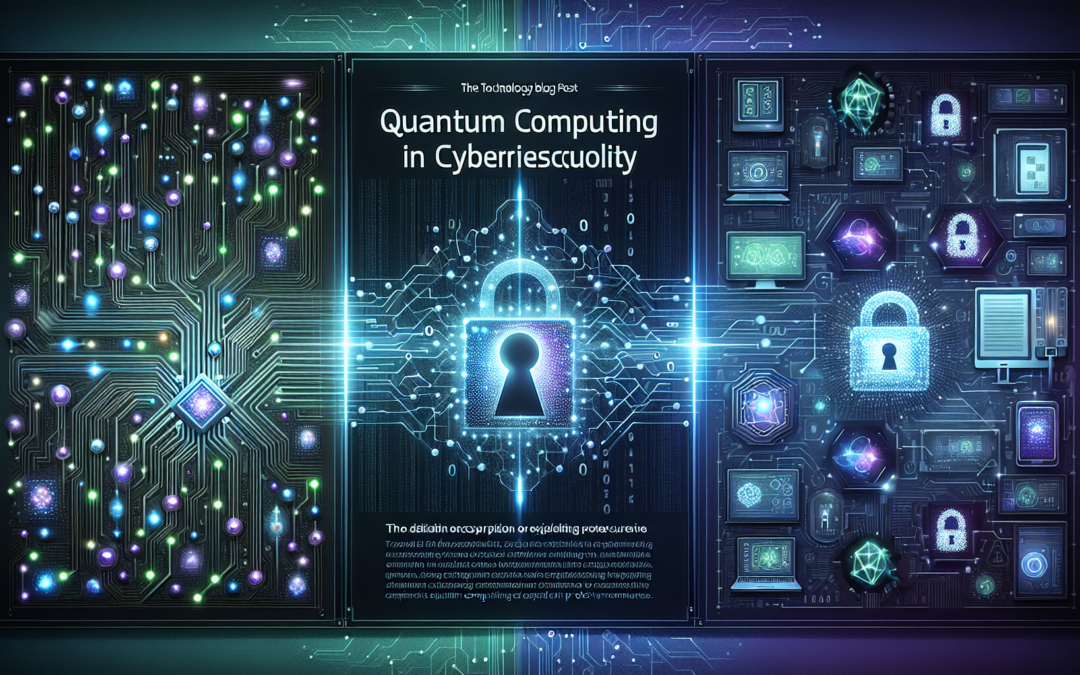“`html
In the fast-evolving realm of technology, quantum computing stands as a double-edged sword, offering immense potential but also posing significant threats to cybersecurity. Recent developments have explicitly shown how quantum computing capability can compromise traditional encryption methods, calling for an urgent and comprehensive focus on safeguarding our cyber infrastructure.
Understanding the Quantum Computing Landscape
Quantum computing, driven by principles of quantum mechanics, exponentially increases computational power and problem-solving capabilities. Unlike classical computing, which encodes information in binary, quantum computing uses quantum bits or qubits, which can exist in multiple states simultaneously. This enables quantum computers to solve complex problems much faster than their classical counterparts.
According to a recent article on Google News, tech giants are in a race to achieve quantum supremacy, wherein quantum computers outperform classical computers. However, this leap could render many of today’s encryption strategies, like RSA, obsolete.
The Implications for Cybersecurity
The threat primarily stems from quantum computers’ ability to break current encryption standards that protect our data. Here is an overview of the challenges:
- Encryption Vulnerabilities: Current public-key cryptography relies on complex mathematical problems, such as factoring large numbers, which are hard for classical computers but trivial for quantum computers.
- Data Breach Risks: Once traditional encryption is compromised, sensitive data, including personal and financial information, is at higher risk of being accessed unlawfully.
- Impact on Digital Security Protocols: Essential security protocols like SSL/TLS could become ineffective, making secure internet communication susceptible to attacks.
Preparing for the Quantum Era in Cybersecurity
Organizations need to pivot towards proactive measures to counteract potential threats from quantum computing:
Post-Quantum Cryptography
The National Institute of Standards and Technology (NIST) is working on standardizing quantum-resistant cryptographic algorithms. Companies should start evaluating and implementing these new algorithms as part of their security infrastructure.
Quantum Key Distribution (QKD)
QKD leverages quantum mechanics to create a communication channel resistant to eavesdropping, ensuring secure data transmission. Adopting QKD can enhance an organization’s data defense strategy.
Regular Security Audits and Threat Assessments
Conduct frequent cybersecurity audits to assess vulnerabilities that could be exploited by quantum computing. Early detection allows for timely implementation of corrective measures.
Investing in Quantum Technology Research
Engagement in quantum technology research will better prepare an organization to integrate and defend against quantum-powered capabilities. Staying informed is key to remaining competitive and secure in this new technological landscape.
The Role of IT Leaders and Policymakers
As an IT director or consultant, it is crucial to take a leadership role in advocating for the necessary strategic changes within organizations:
- Promote awareness and understanding of quantum computing and its implications for cybersecurity among stakeholders.
- Encourage investments in cybersecurity measures to future-proof infrastructure against potential quantum threats.
- Lobby for governmental policies supporting quantum-resilient security standards and regulations.
Moreover, collaboration between tech companies, academic institutions, and government agencies can foster innovation and solidify a united front against impending quantum threats. This synergy will be essential in developing robust solutions that protect both national and global cyber infrastructures.
In conclusion, the technological advancements in quantum computing present both unprecedented opportunities and formidable challenges. As professionals in the IT industry, we must remain vigilant, informed, and proactive in our approach to cybersecurity. By preparing today, we can secure our digital future against the quantum computing threat.
“`
